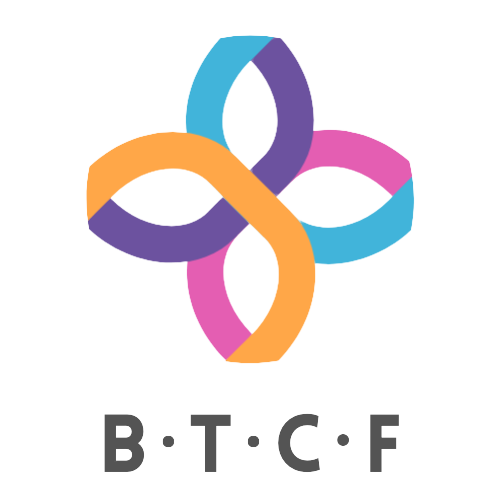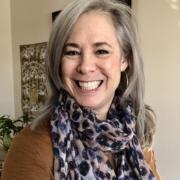AN INTERVIEW WITH VALERIE MONTEGOMERY
BTCF: As a self-published poet, you have a strong purpose and meaning behind your work. Can you please share what that is and how you have been able to share your work?
VALERIE: My calling to support the emotional well-being for all, but especially women has always been present in my life. It is so powerful to me that volunteering has been my longest career! Supporting women’s whole selves, especially emotionally, continues from when I was a high school student and took care of babies in my church’s nursery so the mothers could be with adults for a bit of their week.
I feel like my work is meant to be an illustration of sorts. For others to see themselves in my efforts. For others to become more of who they naturally are.
The poetry that came through my pen during cathartic life moments is not just for me.
BTCF: Our mission is to use the power of art and expression to foster creativity, build connections, and create a community in which individuals are able to thrive. How do you use your poetry or other forms of art as healing tools for yourself and others?
VALERIE: My greatest creativity has appeared through the painful times in my life. It is partially because of what I have been through and who I am that supports others to thrive.
BTCF: Your private practice, Beyond Beautiful is geared toward emotional fulfillment for high-achieving women. What does that mean and how can more women find out about it?
VALERIE: I have two businesses: Beyond Beautiful, PLLC is my clinical practice with women using psychotherapy. My second business Beyond Beautiful Pathways, LLC is the public-facing group of courses and holistic guideship that is more educational and houses my signature programs, one of which is my new Facebook group Beyond Beautiful®: Emotional Fulfillment for High Achieving Women.
This new group has three membership questions in order to join. The women in this group are ready to up-level their presence in their own lives, with access to me and unique opportunities to experience themselves more fully in their lives.
BTCF: What type of e-courses do you offer, and can you share a little bit about what they are?
VALERIE: Yes!
Process Poetry: Using Language to Discover Your True Self is a 6-unit and 13-material course. It houses the mechanisms to support mining the body through the breath using the timeless portal of emotion to access, release, and harness their natural strength. Through this access portal, women can tap the wisdom of the body. They also learn how to release stored shock and freeze in their nervous systems. As a result, they are able to breathe deeper, feel more available for themselves and others, create better relationships, access their joyful contribution to the greater community, and be physically healthier.
The ABC’s of Emotions course teaches folks to understand where their emotions come from, how to learn what they are telling you, and how to communicate your reality with others. Through this mechanism, the learner can access their authentic self and live according to their own value system. Other courses are in development.
BTCF: Mental Health is such an important topic and one that has so many different facets to it, in 2010 you started a group called Mental Health Professionals of Southern Colorado. How did you begin building that community and what are 5 tips you could share that would aid others in doing something like this?
VALERIE: The Mental Health Professionals of Southern Colorado group represents my efforts to support the Counselor community, share resources in our community, and provide support for psychiatrists, psychologists, counselors, social workers, psychiatric nurse practitioners, and marriage and family therapists.
What the group has also done is provide warm referrals for those clients seeking counseling who are not the best fit for the provider they may have first reached out to. Members have found community through this group, found office space, gotten help navigating private practice, gotten jobs, helped with medical insurance billing, and more.
This group has also kept me top-of-mind in the Colorado community for referrals and resource-sharing.
5 Tips:
- Determine what is lacking in your professional community.
- Decide the most efficient way to meet that need.
- Locate the platform virtual or not-to support the chosen community.
- Enlist help with starting the group.
- Provide value and resources to make the group organically useful to your peers.
BTCF: As a health professional, what has been one of your challenges? Is there a philosophy behind your work that helps you navigate the tough spaces?
VALERIE: One of my challenges has been the isolation of working in a solo private practice and now being virtual and working from home. Hence, the Mental Health Professionals of Southern Colorado group.
My most enduring motivation for being successful has been that my children are watching. Even 19 years ago when the marriage with their father was unraveling, I had this awareness of the modeling that I was providing for my now adult children. Most women have a core value of relationships. This is part of what keeps the next generation alive. We can tap into this strength to keep us focused on what is the most important.
I hope I have provided a template for navigating change.
BTCF: What kind of paints do you work with as an artist and what is the process you use?
VALERIE: Ha! Well, this question is actually the back story to my first course’s name.
Before I had developed any courses, I had taken a Process Painting class at our local senior center. One of my clients had told me about it.
Process Painting is led by the instincts and internal direction of the painter. The decisions about which material you want to paint on is accessed through intuition, emotion, or self-motivation. Even down to the way you apply the paint.
Acrylic paint has been my go-to. And I enjoy using stretched canvas. I have applied paint with my hands or with objects like leaves or twigs.
I have used matte gel to apply 3-D materials such as kitchen spices or sprinkles, ribbon, and random items.
I follow what my expression is asking for at the time. I have even smooshed tissue paper and painted over it.
There is no right or wrong method. It is a deep expression of internal guidance.
BTCF: Another art form you enjoy and work in is photography. How did you get started and do you have any tips you can share with people who want to pursue this art form?
VALERIE: My mother told me that even when I was a little girl I would ask my father to take a photograph of something. I only learned that recently and before my mother died in September of 2020.
The eye of the photographer cannot be explained. All of a sudden, a scene asks to be photographed.
I think the process that a person uses to get into photography may be different for each photographer. Maybe they take a photography class. But for me, it has always been instinct. The other day I was taking photographs of my violets blooming in my front yard. Yes, they are beautiful in and of themselves. But, putting the camera-my phone in this case almost on the ground and tilting it upward a bit captured my kitten sitting on the porch looking toward her hard left and my garden statue of a woman beside her. When I got back indoors and looked at the photo that exact one offered more context and nuanced beauty than the violet photograph alone.
BTCF: We are a non-profit organization that is committed to the prevention of body-focused and mental well-being stigma and so much of our work speaks to personal stories. Have you had any lived experiences that you would like to share with us?
VALERIE: Yes! There is so much of my personal journey that allows for non-judgment of others and a deep well of understanding.
I developed an eating disorder by the age of 14. I say “by the age” because these things do not happen in a vacuum. There are context and family stories to support this attempt to cope with the world as I understood it at the time.
Long story short, I decided my behaviors were not healthy for me, so I decided to treat myself in a softer way. That eating disorder was never diagnosed. And, back then it would not have qualified as I only missed one period.
Much later-in my late 40’s I learned I had been a triplet. I was the lone survivor. Think about how my body knew it was missing its womb mates. I have extra training now in prenatal and perinatal psychology. I have also done two series of 5 days of workshops with a birth psychologist.
BTCF: What are three tips you can offer that would help parents aid their youth in navigating in a social media world?
I have 7 grandchildren now! They range from 13 to newborn.
My best advice is to support their parents as much as possible. Treat the parents as if they can do this. Empower them by not making decisions for the parents. Be available. Be a consultant if asked.
Maybe these are tips for grandparents. Culturally, there can sometimes be overbearing grandparents. I always tell my children with children that they are doing a great job.
These tips can apply to any relationship. Self-agency is a powerful internal motivator.
BTCF: Favorite color and why?
VALERIE: My favorite color is fuchsia! Well, a sort of purple fuchsia. Or any combination of these colors. I cannot tell you why! It feels life-giving to me.
BTCF: Favorite place to travel?
VALERIE: My favorite place to travel is to a warm beach. Growing up in Miami, Florida I need my tropical fix every now and then. Also, travel is only good for me if it is with someone I can talk with. Sharing is half the delight!
BTCF: Is there anything else you would like to share that you are working on?
VALERIE: What I am working on now is learning how to support what I have been given so more people can access it. So, I have at least two mentors/coaches. Learning new ways to meet people where they are who might need parts of my work.
BTCF: Thank you, Valerie!
Please visit her Linktree and Linkedin for more information!



